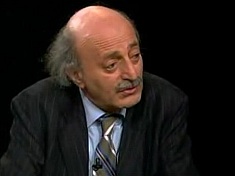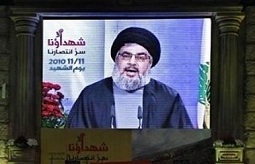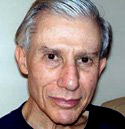Druze Leader Jumblatt Backs Hezbollah

"Expect parliamentary consultations delayed so Washington and France can apply intense pressure, intimidation and coercion to force enough Jumblatt bloc member backing for Hariri, letting his March 14 coalition retain its majority."
Two recent articles discussed Lebanon's present turmoil in detail, accessed through the following links, here and here.
Conditions there remain fluid. Key was a Washington/French pressured UN-backed Special Tribunal's sealed January 17 indictment of those allegedly responsible for former Prime Minister Rafik Hariri's February 14, 2005 killing, preceded by Hezbollah's January 12 pulling out of Lebanon's coalition government causing it to collapse. The above linked articles explain both events in detail, including who, in fact, likely killed Hariri, and implications going forward.
Two blocks comprised Lebanon's misnamed "national unity" government:
● the opposition March 8 alliance, including (Shia) Hezbollah, (Shia) Amals, and (secular, mainly Maronite Christian) Free Patriotic Movement and with 57 seats; and
● the majority March 14 Sunni/Phalangist Christian coalition (including independents, lead by now caretaker Prime Minister Saad Hariri) with 60.
Walid Jumblatt's secular, officially non-sectarian Druze Progressive Socialist Party (PSP) 11 seat bloc holds decisive balance of power in Lebanon's 128 seat parliament. On January 21, he chose sides, Al Jazeera headlining, "Lebanon's Jumblatt backs Hezbollah," saying:
His decision "could give (Hezbollah) and its allies a veto over who becomes the country's next prime minister," Jumblatt saying he wished only to preserve Lebanon's stability, adding:
nouncing the right political stand....by assuring the steadfastness of the (PSP) alongside Syria and the resistance (Hezbollah)."
The previous day, Hariri said he'd seek to form a new government despite strong pressure for him to step down. Michel Aoun, a Christian leader allied with Hezbollah explained, "We said Hariri should not come back, and yes he should not come back."
Hariri agreed to accept the result of January 24 discussions with President Michel Suleiman who called for consultations to choose a new prime minister based on who's most strongly backed. Hezbollah is expected to nominate former prime minister Omar Karameh. Under Lebanon's confessional system, prime ministers must be Sunni Muslim, presidents Maronite Christian, and parliamentary speakers Shia Muslim.

On January 22, Lebanon's Daily Star headlined, "Jumblatt redraws PM battle lines,' saying:
Besides backing Hezbollah (and Syria), he "slammed the UN-backed Special Tribunal (STL) as a tool for 'political blackmail" that threatens the country's national unity and security." Its Hariri killing investigation caused tension between the two blocs, now heightened after announcing release of its sealed indictment expected to name Hezbollah. However, it will be late February or early March before it's known for sure.
Saying Lebanon stood at "a dangerous crossroads," Jumblatt's decision gives March 8 bloc parties an edge, though how many of his 11 members will vote with him isn't sure. According to an unnamed alliance member, he promised at least seven, saying:
"The opposition has secured a majority in Parliament. But holding the parliamentary consultations on time remains uncertain," explaining that Arab and international attempts for compromise could delay scheduled discussions. When held, Suleiman will choose the most popular new prime minister based on choices of all parliamentary members. Both sides are now scrambling to prevail.
Jumblatt, a former March 14 member, split and now backs Hezbollah and Syria, saying:
"The international tribunal has assumed a political dimension par excellence, threatening the national unity and national security. This tribunal's path has become a tool of sabotage and deviated from the path of justice to enter a political bazaar and political blackmail."
He added that a Saudi-Syrian attempted compromise proposed ending Lebanon's links to the STL by canceling further cooperation, halting funding, and withdrawing Lebanese judges. He initially supported the effort "because it provided a solution for the current crisis," and was endorsed by all parties until (Washington/French) pressure corrupted it, adding:
"International powers did not agree or accept a Syrian-Saudi rapprochement through which an inter-Lebanese settlement could be reached to negate the ramifications of the tribunal and its indictment which is in theory secret, but has been announced by all the media outlets. This matter has undermined the tribunal's credibility and confirmed that it is politicized."
Jumblatt's decision came a day after Turkey and Qatar abandoned efforts for a solution, warning partition or possible conflict could result.
A Final Comment
Expect parliamentary consultations delayed so Washington and France can apply intense pressure, intimidation and coercion to force enough Jumblatt bloc member backing for Hariri, letting his March 14 coalition retain its majority.
Which side will prevail isn't clear or whether sectarian strife will result either way. In Lebanon, resolution isn't simple. Hezbollah wants no street violence, but won't accept a Hariri-led government. Washington, Israel and France won't tolerate a Hezbollah-led one. Battle lines are clearly drawn. Some fear political stalemate followed by Mossad assassinations, car bombings and other violence wrongfully blamed on Hezbollah as was Rafiq Hariri's killing.
Going forward, resolution depends on dissociating Lebanon's government from the corrupted tribunal and political compromise, but don't expect it under a Hezbollah-led government. Most often in Lebanon, what's next remains unknown.
___________________________________________________________________________________

Stephen Lendman: I was born in 1934 in Boston, MA. Raised in a modest middle class family, attended public schools, received a BA from Harvard University in 1956 and an MBA from the Wharton School at the University of PA in 1960 following 2 years of obligatory military service in the US Army. Spent the next 6 years as a marketing research analyst for several large US corporations before becoming part of a new small family business in 1967, remaining there until retiring at the end of 1999. Have since devoted my time and efforts to the progressive causes and organizations I support, all involved in working for a more humane and just world for all people everywhere, but especially for the most needy, disadvantaged and oppressed. My efforts since summer 2005 have included writing on a broad range of vital topics ranging from war and peace; social, economic and political equity for all; and justice for all the oppressed peoples of the world like the long-suffering people of Haiti and the Palestinians. Also co-hosting The Global Research News Hour, occasional public talks, and frequent appearances on radio and at times television.
Stephen Lendman is a Research Associate of the Centre for Research on Globalization. He lives in Chicago and can be reached at lendmanstephen@sbcglobal.net. Also visit his blog site sjlendman.blogspot.com and listen to The Lendman News Hour on RepublicBroadcasting.org Monday - Friday at 10AM US Central time for cutting-edge discussions with distinguished guests on world and national issues. All programs are archived for easy listening.
___________________________________________________________________________________
URL: http://www.a-w-i-p.com/index.php/2011/01/23/druze-leader-jumblatt-backs-hezbollah
























